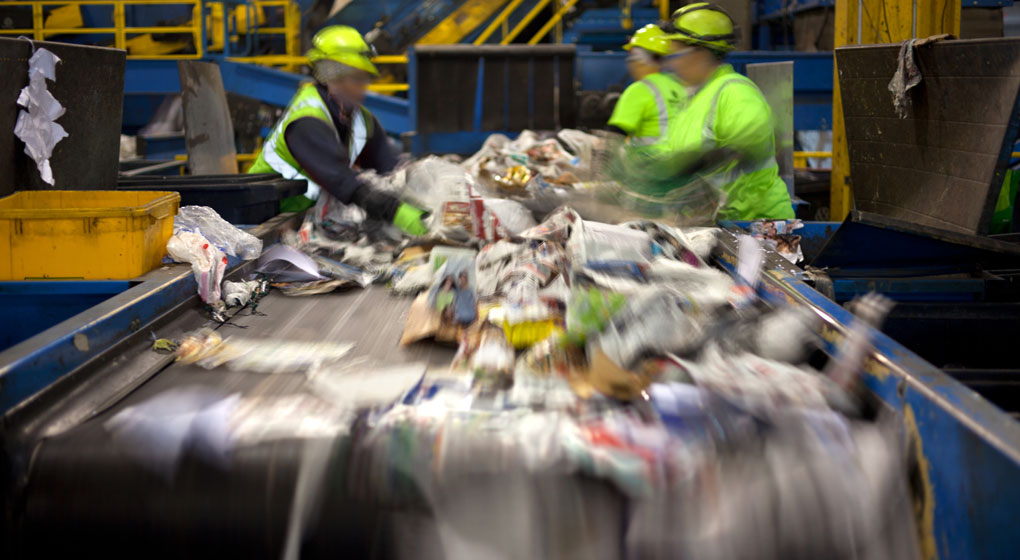A new plastic tax will not address the underlying problem with UK recycling
The Plastics Packaging Tax is due to be implemented from April 2022, proposed at £200 per tonne for plastic with less than 30% recycled content. This includes packaging manufactured in and imported (filled and unfilled) into the UK. This means that most food processors will be affected by the tax, either directly or indirectly. Whilst all Government action to address key sustainability issues in the UK is welcome, this tax is targeting manufactures and imports, fails to address the plastics problem holistically, and comes without a plan for developing the UK’s weak recycling infrastructure. There also appears to be a lack of understanding in Government as to the challenges faced by businesses to increase recycled content to their packaging; technically, legally and commercially.
The meat industry does recognise that plastic is a problem and has committed to making progress. The majority of large processors are active signatories to Wrap’s Plastics Pact, which has four clear goals to be achieved by 2025. It is unclear how the introduction of the tax by April 2022 aligns with the Pact, as businesses have been working to the 2025 goals since 2018.
To understand the challenges around moving away from the status quo, one must understand why plastic is used in the first place. Plastic is light, cheap and durable; its lack of degradability means it is a victim of its own success and has hence become ubiquitous in the environment. Its superior barrier properties have improved food safety, extended shelf life and reduced food waste significantly over recent decades. If changing packaging or material composition, the food industry’s obvious concerns are adversely affecting of these factors. Packaging can also improve quality, ease logistics and become a point of difference in retail display.
There also appears to be a lack of understanding in Government as to the challenges faced by businesses to increase recycled content to their packaging
Whilst it is typically straightforward to add recycled content into rigid plastics such as trays, for others such as flexibles and films there is a huge practical challenge of adding recycled content or replacing plastic for meat packaging. For the aforementioned reasons, packaging performs many functions to maintain food product integrity, and are highly regulated as food contact materials. It must be recognised that a high value, high moisture perishable product like meat is restricted in the current recycled-content options available, especially those that show equivalent performance.
There is a lack of suitable and approved food contact materials available (especially for flexibles and films), and approvals are usually a slow process. An added complication to this is Brexit; the approvals for food contact materials is currently the responsibility of EFSA, but post transition period, this is likely to be within the remit of the FSA. It cannot be the case that industry is forced to pay a tax as there are no viable approved alternatives.
Another barrier to progress is the poor and disjointed recycling infrastructure in the UK. When developing new packaging technologies, it is difficult for companies to be confident they are making products recyclable, or able to use recyclate from novel processes due to lack of large-scale supply. This unpredictability ultimately means contributing to the circular economy is difficult.
Unintended consequences:
In a haste to increase recycled content in plastic, the Government must not inadvertently push companies into using alternative materials that reduce shelf life of food and therefore increase food waste. Food is much more resource-intensive to produce that plastic packaging, and so balancing priorities is key.
There will be increased competition for recyclate on commonly used plastics due to the tax. This will be exacerbated as some plastics (such as PP used for yoghurt pots) cannot currently include recycled content and manufacturers will look to move to established recyclate material where possible. This will push demand and hence the price of recyclate up for the wider food industry, and therefore packaging costs will increase.
Aside from the practical challenges, there is a large administrative burden placed on the food industry to comply with the tax. Many food businesses purchase packaging both from UK manufacturer and also import, both unfilled and filled, directly themselves. This will mean responsibility for record keeping and some will pay tax directly. To facilitate export exemptions, sites will need to become Registered Export Premises (REPs) and manage those goods from a packaging perspective throughout much of the supply chain. This will require coordination between businesses handling the goods, and a much freer flow of information than before.
Government priorities:
Firstly, Government needs to recognise that businesses are willing to make change, but that it has a responsibility to ensure the infrastructure exists to assist them. It is well-known that the UK has patchwork and disjointed curb side recycling services across the country and an over-reliance on the recycling export market. The lack of uniform recycling infrastructure in the UK means that innovation is particularly difficult, as one cannot guarantee a product’s recyclability, thus exacerbating the problem of short-supply of recyclate. This issue must be addressed as a priority, to allow for companies to invest in innovative technologies, increase recycled content in product, and ultimately work towards a circular economy.
The industry cannot look to recycled-content packaging alternatives if they are not approved or being considered for approval as food contact material and therefore exempt from the tax. A delay to the introduction of the tax for those materials for which there is no recycled-content alternative (such as films and flexibles) would allow time for approvals to be granted and supply chains to adjust to new materials/technologies.
We must have a fit-for-purpose food contact materials approvals system after the Brexit transition period, and good Government/industry collaboration to find new solutions. A new approvals process by the appropriate body in the UK must be formed as soon as possible, to replace what was an EFSA function. The process should be straightforward, efficient and transparent, so businesses can innovate with confidence and increase their recycled content.
Overall, costs will increase for meat processors at the very least in the short-medium term. As an industry working on extremely small margins, any increased costs are at risk of being pushed down the supply chain and ultimately onto the consumer. This may mean increased food costs for the British public at a time when the ongoing pandemic and the consequences of Brexit mean a lot of financial uncertainty for many households. Food waste is high on the agenda for processors, and no progress in packaging should be counteracted by a shorter shelf life and an increase in food waste.
By targeting a particular point in the supply chain (manufacture/import), the government is failing to address the biggest barriers to progress, which are lack of recycling infrastructure in the UK and lack of regulatory approvals for new food contact materials. There is however more Government can do to help. To support the industry to achieve a truly circular economy, adopting a much more holistic approach to taxation and investment along the plastic packaging supply chain will ensure real progress.






